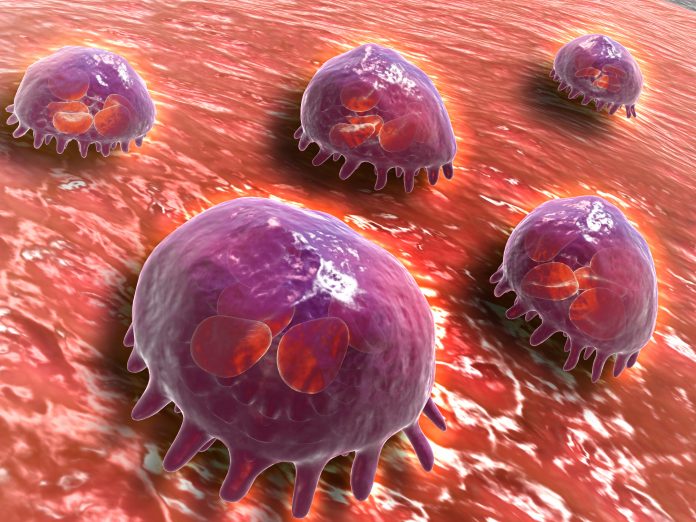
A new study from the Josep Carreras Leukemia Research Institute in Spain has revealed a surprising finding: low oxygen levels, or hypoxia, in tumors may actually enhance some immune responses against cancer.
The research, published in Science Advances, challenges the prevailing view that hypoxia only contributes to tumor progression. Instead, the study identifies an immune cell population that becomes more effective at fighting cancer when exposed to these oxygen-starved conditions.
Tumors often grow faster than their blood supply can keep up, creating regions of low oxygen. This hypoxic environment forces cancer cells and surrounding tissues to adapt, typically in ways that promote tumor survival and make the cancer more resistant to treatment. It has long been believed that hypoxia also suppresses the immune system, allowing tumors to grow unchecked. However, this study suggests that certain immune cells, particularly macrophages, can respond to hypoxia by enhancing their cancer-fighting abilities.
Macrophages, a key type of immune cell, usually play a critical role in keeping tissues healthy and fighting infections. In tumors, however, macrophages are often reprogrammed by cancer cells to suppress immune responses, which leads to worse outcomes for patients. The research team, led by Esteban Ballestar, PhD, found that when macrophages are exposed to low oxygen, they undergo epigenetic changes that allow them to become more effective at activating the immune system to fight cancer cells.
The study focused on macrophages in bladder and ovarian cancers. The researchers identified a set of genes associated with inflammation that were more active in hypoxic macrophages. This increase in activity is driven by regulatory molecules like NF-κB and HIF1α, which are known to be important in immune responses. Tumors that contained these hypoxia-activated macrophages were linked to better patient outcomes, suggesting that the immune system can still fight back even in challenging, low-oxygen environments.
The researchers believe that the discovery is a significant shift in understanding how the tumor microenvironment affects cancer progression. Traditionally, hypoxia has been viewed solely as a barrier to treatment, making tumors more aggressive and resistant to therapies like chemotherapy and radiation. This new research shows that, under certain conditions, low oxygen can actually help the immune system by making some macrophages more effective at attacking cancer cells.
The team hopes that further research will uncover ways to activate this immune response more consistently. Future treatments might involve drugs that mimic the effects of hypoxia or target the specific regulatory pathways identified in the study, such as NF-κB and HIF1α.





